This post is the first in a series celebrating accomplishments of all the amazing people supporting Renew TN since the campaign began a year ago. Renew TN aims to reduce energy bill burdens for Tennesseans most in need; allow solar energy to flourish; put the “public” back in public power. This post is guest authored by two interns with Memphis Has the Power, a part of Renew TN: Rachel Starks is a graduate student in Anthropology at the University of Memphis; Ethan Nichols studies Computer Science at Christian Brothers University. As articles are published in this series, you can find them here.
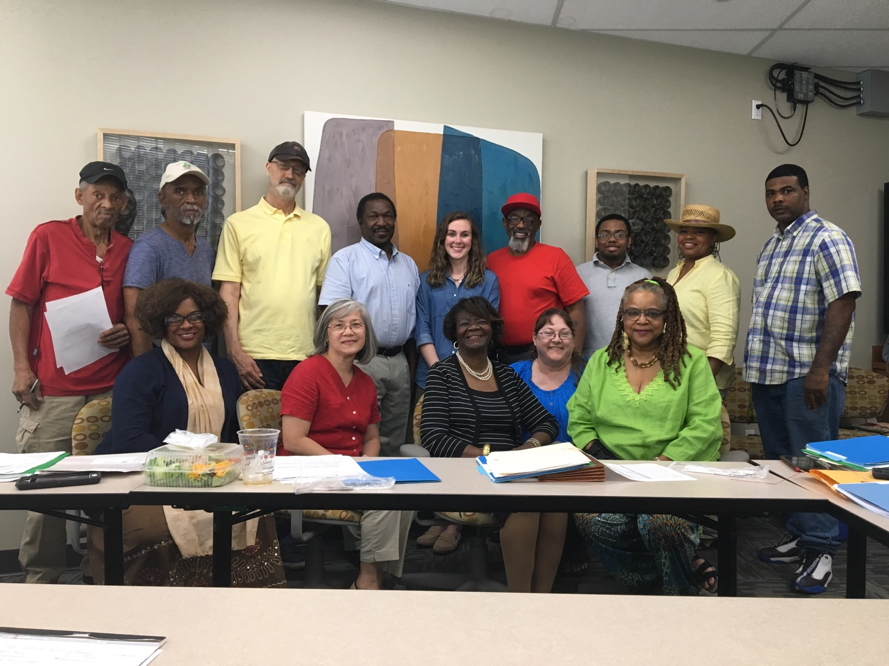
As SACE interns this summer, we have been given the opportunity to witness firsthand how organizations and community members in Memphis are taking action to fight energy burden and improve energy efficiency. Energy burden is a household’s energy costs (the amount paid to your utility), divided by the household income. The national average is around 3% – Memphis has the highest energy burden in the nation, with some neighborhoods experiencing rates as high as 25%.
In the face of this atrocity, multiple organizations in Memphis are coming together to fight to reduce energy burden and promote healthy, affordable living. Over the course of the summer, we have had the chance to meet with several of the unsung heroes working behind the scenes. In this article, we want to highlight their collaboration, commitment, and passion for the Memphis community as they fight a disproportionate energy burden in the Bluff City.
“Homes are not affordable or healthy if energy burden is over the national 3%”…
-Sharon Hyde, Green Healthy Homes Initiative
Master Home Environmentalist Program
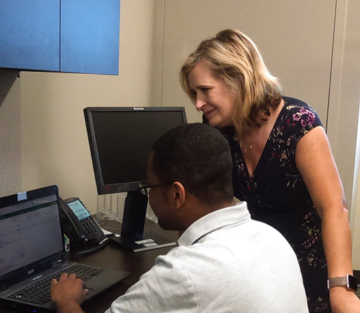
Since the beginning of June, we have been joining our partners, Sharon Hyde at the Green Health Homes Initiative (GHHI) and Cathy Marcinko at Le Bonheur Community Health and Wellbeing, on a collaborative project called the Master Home Environmentalist (MHE) program. The MHE program is a community-based approach that uses neighborhood assets to educate and empower households to address indoor pollutants, such as mold, pests, lead, and other environmental hazards. Through home assessments conducted by trained neighborhood volunteers, MHE identifies potential hazards in the home and refers households to affordable resources available for improving house structure.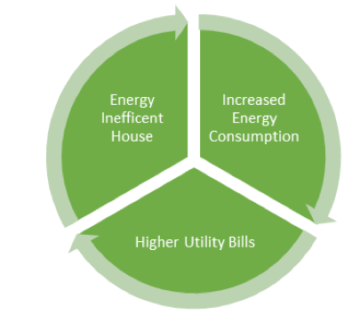 Our MHE partners have been informing us on how energy-inefficient buildings can cause several of these indoor pollutants and health risks. Houses that are not energy efficient do not retain energy inside the home and instead experience increased energy consumption. For example, a house with leaky windows allows cooled air to escape, causing families to run the air conditioning continuously, which in turn raises utility bills.
Our MHE partners have been informing us on how energy-inefficient buildings can cause several of these indoor pollutants and health risks. Houses that are not energy efficient do not retain energy inside the home and instead experience increased energy consumption. For example, a house with leaky windows allows cooled air to escape, causing families to run the air conditioning continuously, which in turn raises utility bills.
Other energy-inefficient factors such as leaky pipes, roofs, and floors create moisture in the home. This causes increased health risks such as dust mites and mold, which can lead to asthma. Memphis ranks the highest in the nation for several health disparities that result from environmental toxins existing in homes across the city, including asthma, infant mortality, and lead poisoning. The elderly and communities of color are at higher risk of exposure to these health inequalities as well as energy-inefficient housing.
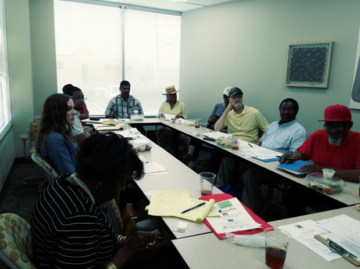
Energy-efficient homes, on the other hand, mitigate these risks AND help families save money over time. But low-income neighborhoods struggle to find resources to afford needed improvements like lead paint removal or roof repairs; Memphis also ranks second most impoverished city in the nation and is home to an unusually high percentage of old housing stock. MHE’s referral system is taking steps to reduce the cost of housing energy efficiency improvements that can help solve these problems by connecting families to low-to-no-cost programs.
Energy burden in Memphis is not only a housing issue but a health issue as well. Exposure to indoor pollutants and other health risks that the MHE program identifies are just a few of the lasting impacts that energy burden has on people.
Unsung Heroes: MLGW and Share the Pennies
In order to address the energy burden and energy inefficiency in the city, Memphis Light, Gas and Water (MLGW) developed the Share the Pennies Program. Customers who opt in to the program agree to have their bills rounded up to the nearest dollar. For example, if your total utility bill was $135.34, it would be rounded to $136. The money that was not used for the actual bill will instead go towards the program. The collected money can be used to weatherize a given recipient’s home to make it more energy-efficient.
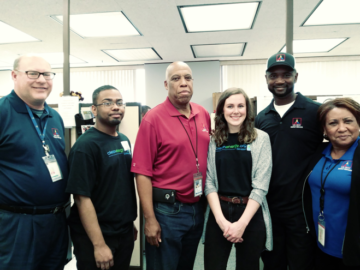
As of June 26th, the program has finished weatherizing its 200th home; and 191 homes are still on the waiting list for this program. It is important for MLGW to step up for this issue as a company that provides energy locally in Memphis.
There are also energy workshops where customers can learn how much energy and water they use. Using what they learn in these workshops, the customers become equipped to accommodate their energy usage in order to reduce the energy burden in their homes.
Through our internship, we had the chance to visit MLGW to learn more about the Share the Pennies program and meet numerous employees of the Energy Efficient Department, including as Mike Davis and Wil Wharton, who told us that he works at MLGW in order to give back to his community.
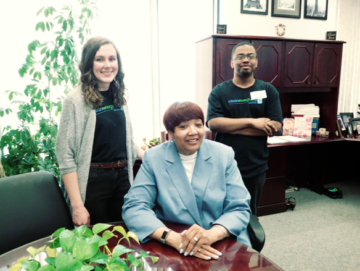
We also met with Jim West, who oversees the Call Center Department and the Billing Department, and Margie Borrum-Smith, the head of the Energy Efficiency Department and the Shares the Pennies program, who explained her motivation for her work:
“We all live on this planet, heading towards the same goal. We all share the same environment as each other.”
In our opinion, the people behind Share the Pennies do not get the recognition they deserve. Despite this lack of attention by the public at large, their hard work is noticeable, especially by those who were impacted by the program.
Empowering Memphis
Access to healthy homes, affordable living, and clean, sustainable energy are all human rights: but Memphis is facing some of the highest percentages of health disparities, housing issues and energy burden in the country. Institutional and environmental racism, along with other deeply rooted social factors, shape these inequalities in Memphis. In order to reshape the energy burden in Memphis, we must approach it holistically. Memphis’s Weatherization Task Force, created by Councilwoman Patrice Robinson, is taking that holistic approach in weatherizing 200 homes with more to come.
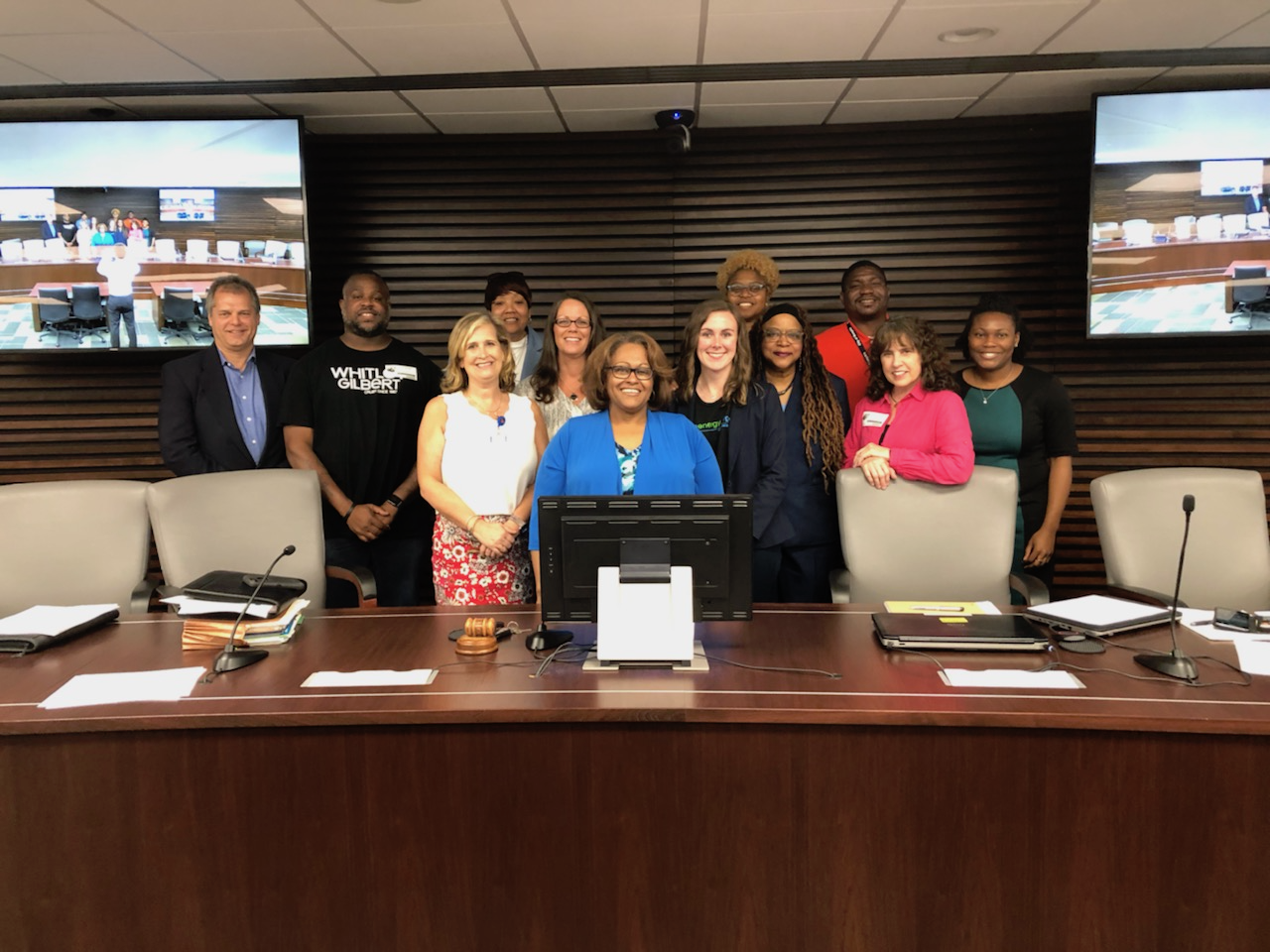
In creating this diverse Task Force, Councilwoman Robinson has shown immense drive and determination to promote affordable weatherization in the city. The Weatherization Task Force is made up of representatives from several local organizations including, MLGW, Metropolitan International Faith Association, Tennessee Valley Authority (TVA), Memphis Housing and Community Development, GHHI, Habitat for Humanity, National Association for the Advancement Colored People (NAACP), Friends of the Earth, International Brotherhood of Electrical Workers, and Southern Alliance for Clean Energy (SACE). The Task Force, under the direction of Councilwoman Robinson, is focused on several local energy-efficient initiatives and policies that SACE supports as well.
Although every group we have met this summer approaches energy burden from a different lens, what has struck us the most from this internship is how so many people have come together to fight for their community. Each of these organizations has a deep passion for Memphis; that passion drives their collaboration and their individual roles in the fight to reduce the energy burden in Memphis. Working with all of these organizations not only bridges relationships but also connects ideas and resources, making them more available to empower Memphis neighborhoods. As Councilwoman Robinson says,
“It takes a village to reduce energy burden and promote healthy housing, affordable power bills, and renewable energy to help some of our most vulnerable populations in Memphis.”
#RenewTNYear1